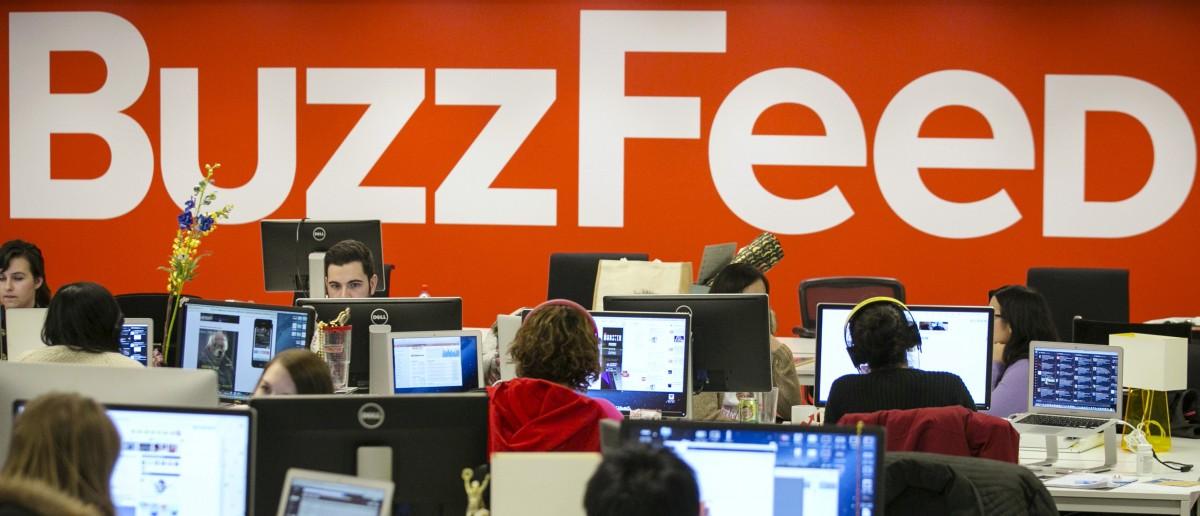In the previous issue, I gave a detailed summary on the controversy involving the President, Buzzfeed and more traditional news outlets as a result of an unverified dossier on Trump released in its entirety by Buzzfeed News. The delicate nuances of the situation — a battle between journalistic integrity, patriotic morale and increased transparency — have rendered me unable to form a conclusive decision on the matter. However, the confusing narrative the dossier invites reaffirms an opinion I steadfastly hold: the unrecognized merit of Buzzfeed and its unique position as an upstart news organization capable of unhinging the long-established hierarchy of news media.
Buzzfeed was founded by Jonah Peretti and John S. Johnson III in 2006 to track viral content and provide “the most shareable breaking news, original reporting, entertainment, and video.”
Billing itself as “the Media Company for the Social Age,” Buzzfeed hired Ben Smith, one of the most acclaimed writers at Politico, as editor-in-chief in 2011 to strengthen its investigative journalism unit and produce original content of its own. Since then, Buzzfeed has grown to a monthly viewership of 203.2 million globally, according to data-intelligence platform Quantcast. The article “These Reports Allege Trump Has Deep Ties To Russia” has 5.95 million hits alone. With that kind of viewership, it’s no surprise that Buzzfeed’s release of the dossier scared Trump into giving his first press conference since becoming president a full two months in advance.
Its reputation as a bonafide investigative news publication is marred by the click-bait style articles and eyebrow-raising content. With quizzes like “Build a Perfect Boyfriend and We’ll Reveal a Deep Truth About You” and articles such as “I Got Botox In my Vagina and It Changed My Life,” it can be easy to cling to a faux-intellectual notion that Buzzfeed is a sneer inducing time waster, undeserving of attention. However, the outlet is incontrovertibly a reflection of society as it is now. Buzzfeed runs what people want to see, and that something runs the gamut from the latest Kardashian drama to extensive live reporting on Ferguson and Syria.
In the age of social media, one can hardly blame Buzzfeed for designing its content to be shared, tweeted, liked, and reposted. The perfect synthesis of information in flashy bubbles and internet shorthand has launched Buzzfeed, part of the nouveau riche class of journalism, into the sight lines of legacy media, or the vieux riche made up of The New York Times, Washington Post and their compatriots. Easy as it is to mourn the declining attention span of society, it would be ignorant to denounce Buzzfeed in favor of the long-winded, largely unread analytical articles put out by ‘respected’ news media. According to a study from Columbia University and the French National Institute, 59 percent of links shared on social media have never actually been read. As frightening as this is, this study indicates a systemic issue of which Buzzfeed takes advantage: titles and endless hyperlinks offer social media-trained eyes to latch on and skim a superficially interesting article, while also allowing a piqued interest to understand at a more insightful level.
The success of Buzzfeed is due to its inherent understanding of the media landscape. While journalistic giants struggle to comprehend declining subscriptions and viewership, Buzzfeed is pulling viewers in with its quirky content. As Poynter’s Jeff Sonderman points out in “Why Buzzfeed As A Real News Site Is No Laughing Matter,” “BuzzFeed is not a site dedicated to funny cats, which just happen to be popular; it is a site dedicated to what is popular, which just happens to be funny cats.”
I wouldn’t put it past Buzzfeed from ever reaching the echelons held so dearly by legacy media. Huffington Post established that precedent when it began much in the same way Buzzfeed did. The two news outlets share a founder, Kenneth Lerer, and a marketing strategy of high-low content. While Buzzfeed has drawn ire, in 2012 Huffington Post became the first commercially run US digital media enterprise to win a Pulitzer Prize.
In the era of slow realization and fleeting trends, it won’t be long before the general populace realizes and, more importantly, recognizes Buzzfeed’s journalistic savvy. After all, as President Obama joked at the 2016 White House Correspondent’s Dinner, “Every year at this dinner somebody makes a joke about Buzzfeed, for example, changing the media landscape. And every year The Washington Post laughs a little bit less hard.”





Dan Najera | Jan 18, 2019 at 4:03 am
“These Reports Allege Trump Has Deep Ties To Russia”
“The Trump Organization Planned To Give Vladimir Putin The $50 Million Penthouse In Trump Tower Moscow”
“President Trump Directed His Attorney Michael Cohen To Lie To Congress About The Moscow Tower Project”
The investigative journalists at Buzzfeed News could be the Woodward and Bernstein of our time.